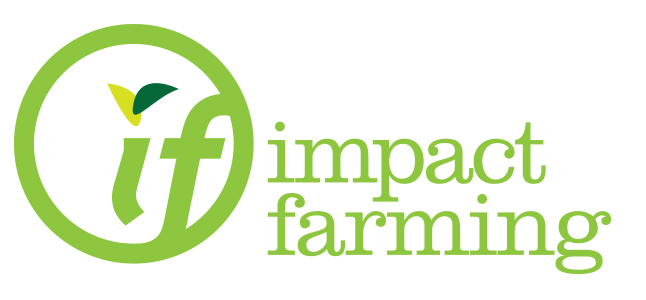SUPPORT
for scalable agricultural innovations that connect smallholder farmers with better seeds, tools and training, along with access to markets, credit and other services.
DIALOGUE
that changes thinking about smallholder farmers from a problem to be fixed to an essential primary economic and social unit of civilization.
ADVOCACY
to ensure the voice of smallholder farmers is part of any process in which the outcome will impact their future.
BACKGROUND
With most indicators suggesting that we have already reached the worldwide limit of arable land, and with current population projections predicting an additional two billion people by 2050, experts feel we are rapidly approaching an impending food crisis where production simply cannot meet demand.
One option is to accelerate the cutting of forests to clear land for more large-scale industrialized farming. But given that it takes roughly one acre of cleared forest to feed one more person, the effect of clearing two billion acres of forest on climate change would be devastating.
There is at least one other option in the form of an innovative experiment that has proven to significantly increase food production while at the same time increasing tree cover rather than reducing it. The story begins in one of the most unlikely places—rural Haiti—with an organization we founded called the Smallholder Farmers Alliance (SFA).
The two of us set out to plant trees in a country with one of the highest rates of deforestation in the world. Haiti, once covered in dense tropical forests, now has less than two percent tree cover. When we asked the Timberland company to sponsor a program that paid farmers to plant trees, the answer was “yes… but on the condition that you can show how it will be sustainable after our funding stops.”
That question forced us to come up with a business case for planting trees. The solution was to combine reforestation with one of Haiti’s other major issues, namely the very low yields of smallholder farmers. We made planting trees a way to earn better seeds, tools and training so that crop yields went up by an average of 40%, farm input costs went down and household incomes increased an average of 50%. The result is a market-based approach to produce more food and by growing more trees. In addition to the resulting agroforestry cooperatives, we have added microfinance support for women farmers, established a farmer field school, created farm businesses and begun exporting agricultural products.
Five million trees and 3,200 farmer-members later—with the help of Timberland and the Clinton Foundation—the model is ready for expansion in Haiti and abroad. Given that the SFA is a Haiti-based organization with a domestic focus, a new organization called Impact Farming has been created to carry this message beyond Haiti’s borders.
The world’s largest under-performing agricultural asset is the 2.5 billion people who live and work on 500 million smallholder family farms. Each with less than five acres (roughly two hectares), these farmers constitute one third of the entire global population and currently produce 70% of our food on 60% of the earth’s arable land. But as in Haiti, most are functioning at well under half their capacity and together represent the majority of the poorest and hungriest people in the world.
The Impact Farming organization was created to work with smallholder farmers throughout the developing world to advance business solutions that integrate sustainable food production with increased tree cover.
While smallholder farmers are emerging globally as the new food and forestry frontier, the Haiti experience has shown that they are also uniquely positioned to be leaders in addressing other important issues. Deploying organic principles in the process of growing more food and more trees helps restore the environment and reduce climate change. If women farmers are supported along the way, this has been shown to further increase overall yields at the same time as improving life for women and girls. Increased household income is a major contributing factor to higher rates of school attendance. And an overall improvement in rural economies attracts young people to stay and not migrate in such numbers to urban areas that are ill equipped to provide enough job opportunities.
With a bit of help, smallholder farmers can use an entrepreneurial model to transform families, communities and local economies… and end up changing the world.
Hugh Locke
President and Co-Founder
Smallholder Farmers Alliance
President and Founder
Impact Farming
Timote Georges
Executive Director and Co-Founder
Smallholder Farmers Alliance
Ambassador
Impact Farming
PROGRAMS
Smallholder Farmers Alliance (SFA): Impact Farming supports the Haiti-based SFA to apply business solutions to help feed and reforest a renewed Haiti by establishing market-based farmer cooperatives, building agricultural export markets, creating rural farm businesses and contributing to community development.
Moringa Export: Impact Farming is supporting the SFA to create and implement a new moringa value chain that will secure a portion of the rapidly growing international market for moringa leaf powder on behalf of that country’s smallholder farmers. Kuli Kuli, the U.S.-based moringa company, is creating a new energy drink made with Haitian moringa that will go on sale at Whole Foods Market stores in January, 2016. A new business model will fully integrate smallholder farmers from ‘field to shelf’ as growers, processors and shareholders collaborate in a new commercial export company that features moringa processing operations run by women farmers.
Lime Oil Export: Impact Farming is supporting the SFA to re-introduce lime trees (shown being planted) in Haiti, once a major exporter of the lime oil extract valued by both the fragrance and beverage industries. The SFA is starting with a pilot program involving 500 smallholder farmers growing and transplanting 20,000 key lime trees in three categories: small-plot sites with 15 trees each, micro-orchards of around 350 trees each and one mid-size cooperative-managed orchard with 3,500 trees on a five-hectare site. The goal is to replicate and greatly expand this program over the next few years in order to supply a planned extraction plant that will once again export lime oil, but this time based on a smallholder farmer model.
Support for Women Farmers: Simply put, if you don’t weight overall support to smallholders in favor of women farmers you are not going to get full value for your investment. That is not to suggest that support should be provided to women only, because that causes its own dysfunction. But supporting women to achieve an equal status with male farmers—and with equal access to resources—has been shown to increase farm yields by 20 to 30 percent, according to the Food and Agriculture Organization (FAO). Impact Farming is initially pursuing this initiative through its support of the SFA.
Kombit: The Cooperative Scheduled for release in October 2015, this documentary chronicles the journey of Timberland and the Smallholder Farmers Alliance to develop a sustainable agroforestry business model in Haiti. Impact Farming is facilitating online distribution of the documentary, with all proceeds going to support the SFA: www.kombitfilm.com.
Reintroducing Cotton Export: Cotton was once a valuable agricultural export from Haiti. Impact Farming—with the support of the Smallholder Farmers Alliance (SFA), Timberland and the Clinton Foundation—is undertaking a feasibility study to explore the possibility of reintroducing cotton as an export crop. The focus will be on smallholder cultivation that is intercropped and/or in rotation with basic food crops. Among the issues to be considered will be the possibility of organic certification and/or Better Cotton Initiative compliance. The study will also incorporate the SFA agroforestry model that links tree planting with improved agriculture. The painting left is “Picking Cotton” by Michaelle Obin (Indigo Arts Gallery, Cap Haitien).
Smallholder Metrics Model: Impact Farming is working with several universities and non-profits to develop a new standardized methodology for measuring smallholder farm input, output and impact (including environmental, social and economic effects, as well as the role of women).








